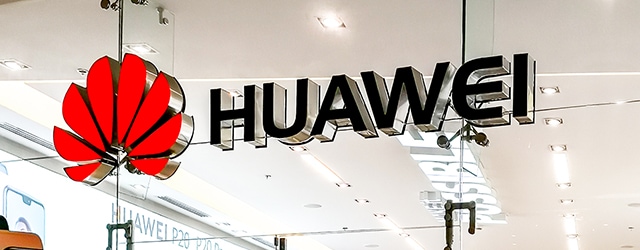WillHuawei be shut out of the global 5G race?

When Ryan Ding, executive director of Chinese smartphone maker Huawei, cheerfully announced on June 24 that his company would be increasing its investment 5G technology, the company seemed to have shrugged off its recent US ban. In reality, the company—which already claims to have sunk $2 billion into 5G product development—has to go a long way to assuage cybersecurity fears in the US and beyond.
Ding’s keynote address emphasized that cybersecurity and privacy protections are “top priorities” for his company, adding: “We ensure the security of carriers’ 5G networks with our secure products and trusted services.” This is no surprise given that Huawei has been at the frontline of the US-China trade war, where cybersecurity has been a top issue. US President Donald Trump has already named Huawei as a threat to national security, but now these fears have boiled over into Huawei’s other markets.
The UK is considering whether toallow Huawei to help develop the country’s 5G network. A leaked report from the UK National Security Council suggested the government could give the company access to “non-core” parts of the network. While the final decision will sit with the next UK prime minister, this proposed partial ban has received mixed responses.
Conrad Prince, a senior cyber adviser with the Royal United Services Institute (RUSI),a UK defence and security think tank, said in recent commentary that UK’s approach is a “clear-headed recognition” of the influence of the Chinese state on companies like Huawei and the danger of Chinese intellectual property theft to UK companies: “The UK approach is fundamentally about making informed risk management judgements, and keeping Chinese (and certain other) technology out of key parts of the network.”
In an interview with the Financial Times, Niklas Heuveldop, chief executive of phone maker Ericsson’s North American business, criticized the partial ban. Heuveldop—who says he does not advocate a bandespite his company being a competitor to Huawei—said a partial ban planned by the UK reflected a “misunderstanding” of how 5G worked.
The UK’s refusal to enforce an outright ban on Huawei has been a source of tension for US-UK relations. This week, Woody Johnson, the USambassador to the UK, told a conference in London that allowing for Chinese involvement in the UK’s 5G network was like “letting a kleptomaniac into your house.” Other than the US, Australia is the only English-speaking country to ban Huawei’s 5G technology outright.
Other European markets are moving to limit Huawei’s involvement in 5G technology. Earlier this year, Dutch telecoms giant Royal KPN said it would choose a Western supplier for its core 5G mobile network—making it the first European operator to do so. Huawei’s involvement will be limited to supplying non-core radio equipment. On the other hand, Germany—Europe’s largest economy, and arguably most significant market—have ignored the US calls to ban Huawei on security grounds, setting a level playing field for foreign companies.
However, RUSI’s Prince says a narrow focus on Huawei and 5G risks obscuring a broader question over the global nature of Chinese technology and its implications for governments and corporations. He asked: “Not just telecommunications, but also energy, health, civil aviation, manufacturing and many other sectors are all likely to involve digital products that have some Chinese dimension. Is it sensible or realistic to ban it all?”



